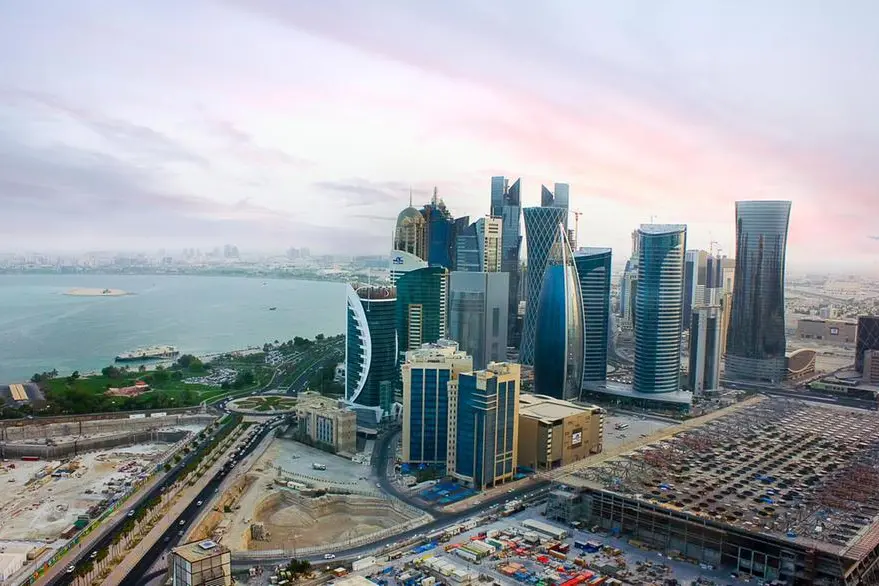PHOTO
Qatar's crowded banking sector could see more consolidation triggered by pressure on banks' profitability from the coronavirus pandemic, particularly those with weaker franchises and limited pricing power, according to Fitch Ratings.
Common government ownership is also a key driver for consolidation to create better capitalised banks with enhanced competitive advantages to support the Qatar Vision 2030 development plan, the global ratings agency said in a new report. Al Khalij Commercial Bank and Islamic bank Masraf Al Rayan's (MAR) recently agreed merger will potentially create Qatar's largest Islamic bank by total assets and diversify MAR's business model, which is predominantly wholesale focused (85 percent of total financing).
This will be the second merger in Qatar between an Islamic bank and a conventional bank after Islamic bank Dukhan and International Bank of Qatar (IBQ) merged in April 2019. Despite a weaker economic environment and expected downward pressure on valuations from the impact of the pandemic, AKCB was valued at 8.2 billion Qatari riyals (based on the closing share price on 5 January), representing 1.14x its tangible book value, compared with 1.027x tangible book value for IBQ (A/Stable/bb+ pre-merger).
“In our view, this reflects AKCB's adequate capitalisation (end-3Q20: common equity Tier 1 ratio of 14.8 percent against 8.5 percent regulatory minimum) and private banking niche, an important addition to MAR's business model and funding franchise,” Fitch said. MAR (the surviving entity) will have a larger funding capacity (147 billion riyals combined non-equity funding) to finance additional government projects. This could further increase MAR's exposure to government and government-related entities, which represented 47 percent of its financing book at end-3Q20, but would support the bank's asset quality. The combined entity is set to be well-capitalised with a leverage ratio of about 12 percent, although one-off integration costs could weaken capital. The merger should strengthen MAR's private banking funding franchise, which could reduce the bank's high reliance on wholesale funding, particularly short-term placements, and lower its loans-to-deposits ratio, which is one of the highest in the market.
Dukhan's merger with IBQ boosted the proportion of retail and private banking deposits (43 percent of total deposits at end-1H20) in its overall funding. However, the bank still lacks stable long-term funding and is yet to meet the 100 percent Net Stable Funding Ratio regulatory requirement. Further Qatari bank mergers could generate cost synergies that alleviate pressure on profitability from compressed financing margins and higher loan impairment charges due to the pandemic.
Dukhan's cost-to-income ratio decreased to 32 percent in 1H20 from 38 percent in 2018 after the bank realised 90 percent of its planned cost synergies from its merger. MAR's merger should result in a cost-to-income ratio of about 20 percent, comparing well with peers. Mergers can also increase banks' asset quality risks from collateral valuations, changes in loan classification policies and building provisions against purchased credit-impaired assets. Dukhan's Stage 2 financing ratio increased to 19 percent at end-1H20 from 14 percent at end-2018, largely due to the reclassification of some of IBQ's loans that had been recorded as Stage 1 at the time of the merger. Qatari rated banks' Issuer Default Ratings (IDRs) are “driven by our belief in an extremely high probability of state support for all domestic banks, if needed, regardless of their franchise and ownership.” Qatari bank mergers are unlikely to affect IDRs, but they could affect banks' standalone creditworthiness, as expressed by their Viability Ratings.
(Writing by Brinda Darasha; editing by Daniel Luiz)
(brinda.darasha@refinitiv.com)
Disclaimer: This article is provided for informational purposes only. The content does not provide tax, legal or investment advice or opinion regarding the suitability, value or profitability of any particular security, portfolio or investment strategy. Read our full disclaimer policy here.
© ZAWYA 2021





















